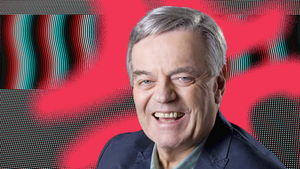UK media regulator OfCom has issued a final ruling blocking the BBC from launching a new golden oldies spin-off radio station under the Radio 2 brand. It’s a decision welcomed by the commercial radio sector, but dubbed “disappointing” by the BBC and “disgraceful” by Radio 2 presenter Tony Blackburn.
According to commercial radio sector trade group RadioCentre, OfCom’s decision is “the only sensible conclusion” to the regulator’s assessment of the BBC’s proposals for the Radio 2 spin-off. However, the trade body is less pleased that three other new BBC spin-off stations have been approved.
Commercial radio companies argue that the BBC’s bid to launch new genre or decade specific versions of its national radio brands will result in the licence fee funded broadcaster going into direct competition with its commercial rivals without delivering any additional public service content.
“It is good to get final confirmation that the Radio 2 spin-off service has been blocked by OfCom”, says RadioCentre CEO Matt Payton. The BBC’s plans for that new digital station “should always have been a non-starter”, he adds, due to its “similarity to existing commercial stations and the negative impact on competition”.
Radio 1 spin-offs focused on dance music and tracks from the 2000s and 2010s, and a Radio 3 spin-off playing classical music to aid relaxation, will be allowed to launch on DAB digital radio.
On that, Payton says, “The fact that the other spin-offs will now go ahead is disappointing especially given their lack of distinctiveness or news output”. He adds “we expect OfCom to monitor these new BBC services closely” to assess their impact on competing commercial services.
For its part, the BBC says it’s “disappointed that in a thriving audio market” it isn’t able to launch a Radio 2 extension that, it believes, “would have provided audiences with a unique BBC take on the music, stories and archive performances from 1950s, 60s and 70s”.
Radio 2 presenter Tony Blackburn was more forthright in his response, calling OfCom’s decision “disgraceful” and declaring that the regulator is “totally out of touch and refuses to listen to those of us who broadcast”.
But Blackburn’s view is wrong according to one of the commercial stations the Radio 2 spin-off would have competed with, Boom Radio, which was particularly vocal in calling for OfCom to block the BBC’s plans. Needless to say, it has welcomed the ruling, while also insisting that the regulator has, in fact, listened to “those of us who broadcast”.
Its founder Phil Riley wrote on X, “OfCom made the correct decision in my view, based on their statutory duties and all the evidence laid before them. We were properly listened to - as were all parties involved including the BBC - and you cannot ask for more than that”.
The BBC initially announced its plans for four new digital radio stations in February 2024. The Radio 2 spin-off was always the most controversial, with OfCom telling the BBC that it couldn’t even add that service to the BBC Sounds app while it assessed the proposal for a full digital radio station.
The regulator published a provisional ruling blocking the Radio 2 spin-off in April. This week’s decision follows a final phase of consultation.
In addition to the new music services, the BBC also wanted to expand the broadcasting hours of its existing Radio 5 Sports Extra service. OfCom also blocked that proposal.

